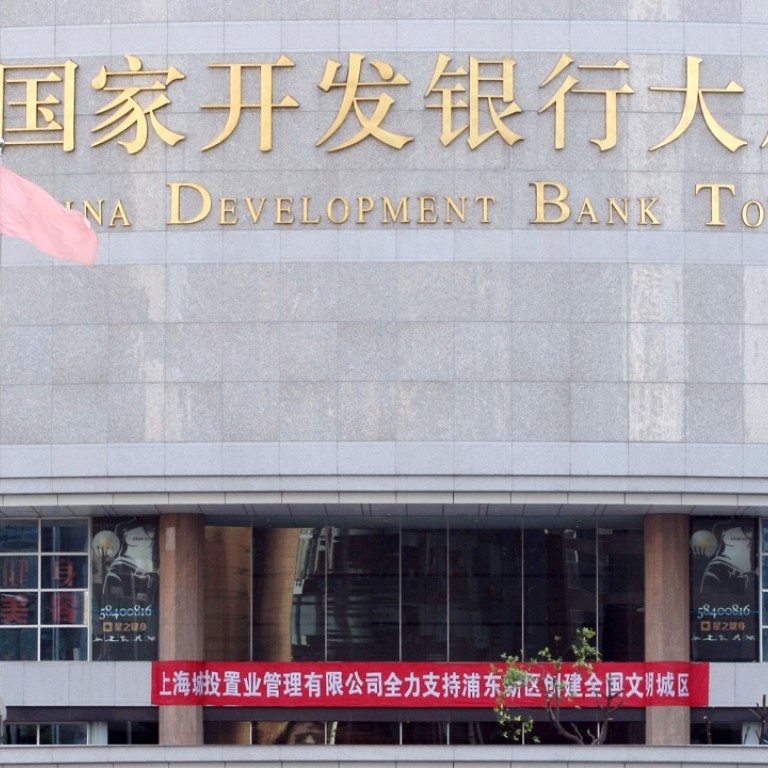
China’s financial giants hammered in discipline review
China Development Bank and China Investment Corp – at the vanguard of Beijing’s global investment ambitions – fail integrity check
China’s top policy financial institutions, which are expected to shoulder an even more prominent role in Beijing’s economic diplomacy, received harsh criticism from top anti-graft agency inspectors after a two-month disciplinary review.
Analysts said that while the public reports might only reveal part of the corruption besetting the institutions, Beijing appeared determined to introduce anti-graft reforms in the sector as it expanded its footprint in global finance.
Among the 21 financial regulators and institutions that came under review, China Development Bank, the country’s biggest policy bank, and China Investment Corporation, the mainland’s sovereign wealth fund, are among the major fund contributors to the Silk Road Fund – a main vehicle for China to promote its “One Belt, One Road” strategy.
“There were graft risks and moral hazards in credit, procurement and project construction,” the Communist Party’s Central Commission for Discipline Inspection said about the CDB.
“The problem of extravagance is prominent. Office space surpassed the standards excessively and it built luxurious hotels in multiple places with many remaining idle.”
In the reports, the CIC was criticised for playing golf with public money while overseas travel using the taxpayers’ dime continued “despite repeated prohibition”.
“There were wrongdoings in policymaking and severe problems in the tunnelling of interests,” the agency said, adding that CIC’s marketing fees “went out of control” and problems of discipline “occurred frequently”.
Zhuang Deshui, deputy director of Peking University’s Clean Government Centre, told the South China Morning Post the reports did not address the basic problems underlying the financial system, such as the flow of funds for credit projects, Zhuang said.
However, the anti-graft campaign would help to improve the image of China as it geared up for a greater role in international financing
“China is at the initial stage of outbound investment and it is normal to encounter various risks as it lacks sophisticated rules,” said Chu Yin, a researcher with the Centre for China and Globalisation.
Chu said the corruption sweep wouldn’t affect outbound investment because the focus of the campaign was domestic.
“The set-up of the Asia Infrastructure Investment Bank with the introduction of foreign countries in and outside Asia was aimed at open and transparent operations, which will dispel outsiders’ suspicions over the credibility of China’s dominance in the bank,” Chu said.
A Beijing-based economist, who declined to be identified, also questioned whether the policy bank could get a return on infrastructure investment. Some of its credit flows, especially for overseas projects, were hard to track, he said.
The far-reaching anti-corruption campaign launched by President Xi Jinping and his close ally Wang Qishan swept into the financial system after the stock market crashes last summer.
Wu Yuliang, deputy secretary of the CCDI, told a press conference last month that corruption was set to lead to “back-room operations” in financial sectors and the campaign to monitor activities would continue.

